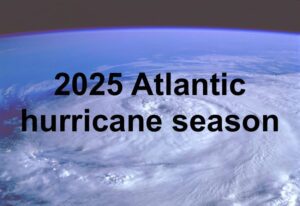Finding ILS managers with proper capital reserving techniques crucial: Cambridge Associates

According to Joe Tolen, Investment Director in the Credit Investment Group at Cambridge Associates, one of the crucial elements of insurance-linked securities (ILS) manager selection is the ability to “identify managers with appropriate capital reserving techniques, necessary in the immediate aftermath of large catastrophic events.”
In a recent report for Cambridge Associates, Tolen wrote that the frequency and severity of catastrophic events between 2017 and 2022 have “inevitably led to side pocketing and trapped collateral issues throughout the industry.”
This has in turn made “capital less available for renewals, decreased ILS liquidity, and diminished expected returns,” he said.
“As a result, a crucial element of ILS manager selection is the ability to identify managers with appropriate capital reserving techniques, necessary in the immediate aftermath of large catastrophic events,” Tolen explained.
He continued, “The ongoing effects of climate change also play a key role in ILS manager selection. Investors should know, for example, if an ILS manager takes a more conservative, longer-term approach to warming global temperatures.”
Tolen observed that, unsurprisingly, climate change is an “ever-present factor related to ILS.”
He added, “Empirical evidence suggests that the severity and frequency of some meteorological events have increased over time. Extreme rainfall and wildfires are two examples. Other primary natural catastrophe perils, such as earthquakes and hurricanes, do not seem to have been affected thus far, but climate attribution research is ongoing.”
Tolen underlined that climate change-related adjustments to underwriting practices are a central interest of the ILS community, noting that researchers are continuing to analyse how the effects of global warming and climate change will unfold, both in the form of long-term trends and sudden, unpredictable shocks.
Thus, “Understanding a manager’s peril exposure and the reasoning behind these allocation decisions is crucial,” Tolen stated.
He went on, “Is a manager taking on Florida wind due to higher premium opportunities? Is it diversified because of a bias away from peak perils? How does its stance on climate change affect its allocation strategy?”
Elsewhere in the report, Tolen suggested that ILS represent an opportunity for pensions to back an often-overlooked asset class at an attractive entry point, one that can “complement a pension portfolio’s existing risk factors with an uncorrelated return stream.”
“To gain the most advantage from ILS, pensions should commit to medium-term holding periods rather than be tempted to time the market by capturing dislocations as they occur,” Tolen said.
He added that more experienced ILS investors may size their investments up or down, depending on a hardening or softening cycle.
“Increased volatility and uncertainty in both the market environment and the natural world have helped to position ILS as an allocation worthy of consideration by pensions as they work to accomplish their long-term goals,” he concluded.







